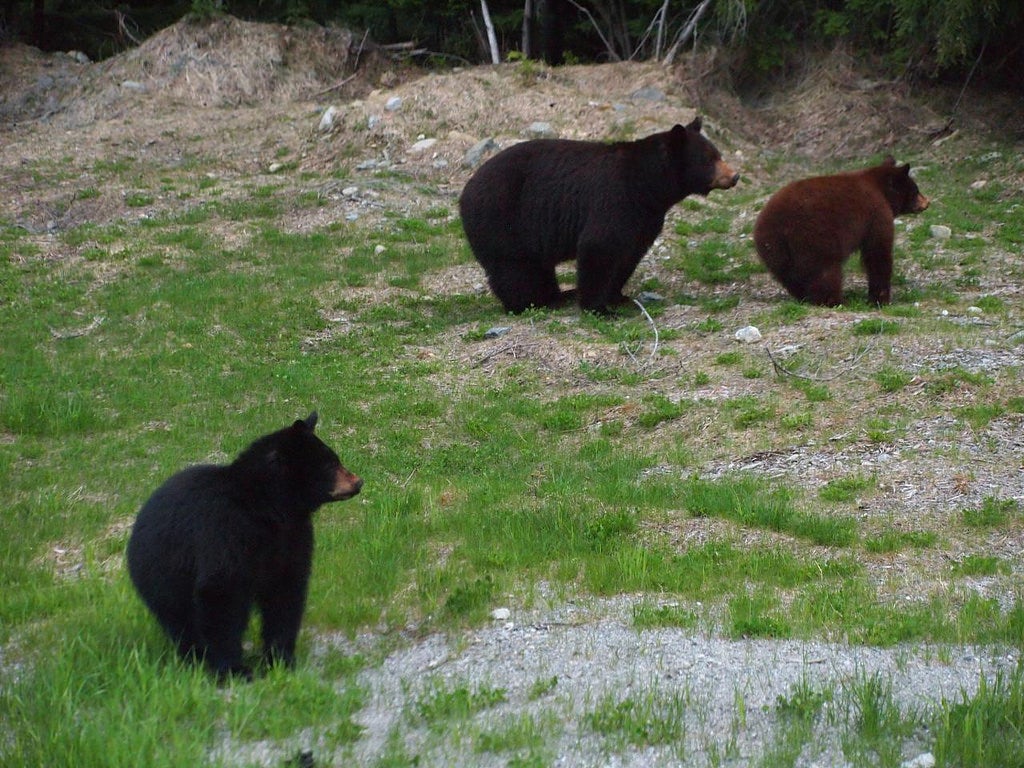Admitting When You’re Wrong on the Trail

'Photo by Walter Lim/flickr'
The sign at the campsite is straightforward. “Closed due to bear activity.” You’d think there wouldn’t be room for interpretation, but my wife and I see the same words and come to two different conclusions.
Liz says it’s ominous. She uses that exact word. “Ominous.”
I see it as auspicious. A campsite this choice is usually the first to get nabbed, but it’s wide open thanks to the sign, which I interpret more as a friendly caution than a hard-and-fast rule. The site is right next to the river, close to a swimming hole, and has some of the best views in the area. “No wonder the bears like to hang out here,” I say.
We’re on an overnight trip in North Carolina, following a section of the Art Loeb Trail as it careens over high-elevation balds and dips into stands of evergreens and meadows of waist-high grass. It was supposed to be a fun way to recharge—get away from the kids, sip canned wine by the campfire—but it’s turning into an intensive marriage therapy session, largely because of my quest for a perfect campsite. A campsite exactly like this one.
Liz wanted to set up camp 3 miles earlier, at a decent site that promised a good sunset, but I had my heart set on a spot by the river because I know she loves to fall asleep to the sound of water. Plus, if we go swimming, there’s a chance we’ll skinny-dip. So we continued, climbing through rhododendron tunnels and down the rocky trail until we hit the Yellowstone Prong, a trout stream packed with waterfalls and some of the best campsites in the forest. When they’re not closed due to bear activity.
I offer my interpretation of the sign. “The campsite is incredible,” I say. “Black bears are largely misunderstood creatures,” I add.
Liz doesn’t buy it. But she has the patience of a preschool teacher, so she weighs the pros and cons of my argument (pro: proximity to water; cons: breaking the rules, death by bear) and suggests, sensibly, that we backtrack to the good campsite we passed 3 miles earlier. I’m allergic to backtracking, so we compromise and continue down the trail in search of a different site on the river that bears might be less interested in.
But as the path shifts away from the water, it becomes obvious that we’ve left the best sites behind. Much like when I determined we didn’t need reservations for that new restaurant (we did) or that I could fix the toilet myself (I couldn’t), I’m wrong. But my poor judgment is even more evident—and has more serious consequences—when we’re backpacking. I realize that the “compromise” we made to search for another site was just me being too stubborn to adapt when our circumstances changed.
After a couple of quiet miles, over which I imagine my wife is thinking about all of her suitors who were probably better listeners and outdoorsmen than I am, we settle for a spot nowhere near the river without any view at all because it’s getting dark and we’re tired and this is what happens when you can’t admit you’re wrong. A small defeat turns into a big one.
Backpacking is full of wrong turns, twisted ankles, and miscalculated mileage. Nowhere are there more “opportunities for growth,” as a counselor might say. So that night, as we lie on uneven ground in a too-small tent without any view, I admit my mistakes. I apologize for overlooking the first site, and for pushing onto this pile of dirt. Fortunately, Liz loves backpacking as much as I do. “I don’t mind this spot,” she says, “but you can try again tomorrow.”